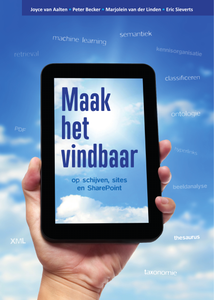Background The number of caesarean sections (CS) is increasing globally, and repeat CS after a previous CS is a significant contributor to the overall CS rate. Vaginal birth after caesarean (VBAC) can be seen as a real and viable option for most women with previous CS. To achieve success, however, women need the support of their clinicians (obstetricians and midwives). The aim of this study was to evaluate clinician-centred interventions designed to increase the rate of VBAC. Methods The bibliographic databases of The Cochrane Library, PubMed, PsychINFO and CINAHL were searched for randomised controlled trials, including cluster randomised trials that evaluated the effectiveness of any intervention targeted directly at clinicians aimed at increasing VBAC rates. Included studies were appraised independently by two reviewers. Data were extracted independently by three reviewers. The quality of the included studies was assessed using the quality assessment tool, ‘Effective Public Health Practice Project’. The primary outcome measure was VBAC rates. Results 238 citations were screened, 255 were excluded by title and abstract. 11 full-text papers were reviewed; eight were excluded, resulting in three included papers. One study evaluated the effectiveness of antepartum x-ray pelvimetry (XRP) in 306 women with one previous CS. One study evaluated the effects of external peer review on CS birth in 45 hospitals, and the third evaluated opinion leader education and audit and feedback in 16 hospitals. The use of external peer review, audit and feedback had no significant effect on VBAC rates. An educational strategy delivered by an opinion leader significantly increased VBAC rates. The use of XRP significantly increased CS rates. Conclusions This systematic review indicates that few studies have evaluated the effects of clinician-centred interventions on VBAC rates, and interventions are of varying types which limited the ability to meta-analyse data. A further limitation is that the included studies were performed during the late 1980s-1990s. An opinion leader educational strategy confers benefit for increasing VBAC rates. This strategy should be further studied in different maternity care settings and with professionals other than physicians only.
MULTIFILE

The research described in this paper provides insights into tools and methods which are used by professional information workers to keep and to manage their personal information. A literature study was carried out on 23 scholar papers and articles, retrieved from the ACM Digital Library and Library and Information Science Abstracts (LISA). The research questions were: - How do information workers keep and manage their information sources? - What aims do they have when building personal information collections? - What problems do they experience with the use and management of their personal collections? The main conclusion from the literature is that professional information workers use different tools and approaches for personal information management, depending on their personal style, the types of information in their collections and the devices which they use for retrieval. The main problem that they experience is that of information fragmentation over different collections and different devices. These findings can provide input for improvement of information literacy curricula in Higher Education. It has been remarked that scholar research and literature on Personal Information Management do not pay a lot of attention to the keeping and management of (bibliographic) data from external documentation. How people process the information from those sources and how this stimulates their personal learning, is completely overlooked. [The original publication is available at www.elpub.net]
DOCUMENT

Het beheer van grote hoeveelheden documenten vormt een steeds grotere uitdaging voor organisaties. Of het nu gaat om bestaande of nieuwe informatiesystemen, lokaal of in de cloud, informatiemanagers stellen zich de vraag welke mogelijkheden er zijn om de toegankelijkheid en vindbaarheid van de informatie zo effectief mogelijk te realiseren. Een goede vindbaarheid bespaart immers vele uren arbeidstijd en voorkomt incomplete dossiers. Traditionele instrumenten als taxonomieën, thesauri en autorisatielijsten bewijzen daarbij nog dagelijks hun waarde en de technische ontwikkelingen hebben de mogelijkheden uiteraard verruimd: automatische indexering en klassering, ontologieën en hyperlinking zijn waardevolle aanvullingen. In dit boek behandelen we belangrijke methoden en technieken om informatie (documenten) van een organisatie vindbaar te maken. De theorie van de toegankelijkheidsleer wordt vanaf de basis behandeld en aan de hand van vele voorbeelden komen technieken en instrumenten als taxonomie, thesaurus, ontologie, zoekmachine en classificatie aan de orde, inclusief stappenplannen om hier zelf mee aan de slag te gaan. Omdat SharePoint een veelgebruikt platform is voor het beheren en delen van documenten, besteden we een apart hoofdstuk aan de wijze waarop documenten binnen SharePoint zo goed mogelijk vindbaar kunnen worden gemaakt. De hoofdstukken worden afgewisseld met kaderteksten waarin specifiek wordt ingegaan op gerelateerde onderwerpen als XML, machine learning en cardsorting. Iedereen die in de praktijk betrokken is bij de implementatie van een informatiesysteem of in opleiding is tot informatieprofessional kan putten uit de uitgebreide beschrijvingen en handvatten die dit werk biedt. Omdat studenten een deel van de doelgroep vormen, is dit werk als open textbook onder een Creative Commons licentie gratis te downloaden. Originele document: https://udocstore.nl/docs/9789492388001 Joyce van Aalten (docent bij GO Opleidingen) Peter Becker (docent informatiebeheer aan de Haagse Hogeschool en GO Opleidingen) Marjolein van der Linden (docente aan de Hogeschool van Amsterdam, opleiding Media Informatie en Communicatie en bij de opleiding Communicatie) Eric Sieverts (docent bij VOGIN en GO Opleidingen)
DOCUMENT
